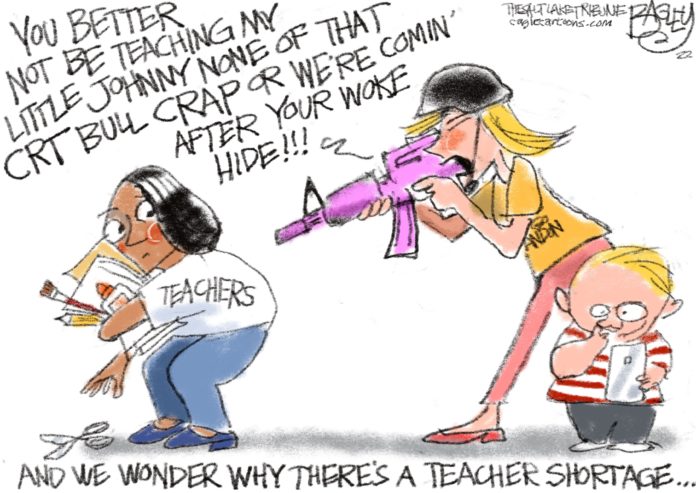Earlier this month the Oklahoman carried a story by Molly Young of the USA Today Network’s Sunbelt Region explaining that Cheyenne and Arapaho Gov. Reggie Wassana had called upon the federal government to change the name of the Washita Battlefield National Historic Site in western Oklahoma to better reflect the events of Nov. 27, 1868.
On that date, Lt. Col. George Custer, tracking a Kiowa war party, launched a surprise attack on Black Kettle’s Cheyenne camp on the Washita River. Black Kettle and his wife were killed almost immediately on what was almost the fourth anniversary of Col. John Chivington’s attack on Black Kettle’s camp at Sand Creek in Colorado.
Both were surprise attacks on villages led by one of the most recognized peace chiefs of the 19th century plains. Both were executed with the utmost brutality, the intent being the complete annihilation of those they were attacking.
Custer did stop his slaughter in order to use captive women and children as human shields to abet his escape – and then as the raped rewards of victory for himself and his officers on their retreat to Camp Supply.
Young reported that, “Cheyenne leaders asked Congress in the 1990s not to label the place where dozens of their ancestors were killed in a surprise attack as a battle.”
She cites Max Bear, the tribal historic preservation officer for the Cheyenne and Arapaho Tribes, as saying, “To us, it was an invasion. The culture clash was, ‘We want this, and we want you out of the way.’”
Bear would prefer the site bear the “massacre” designation that Sand Creek carries.
With the Interior Department working to eliminate offensive and racist landmark names throughout its holdings, tribal officials hope the Washita site will receive a similar correction.
“If you’re going to tell a story, tell it accurately and truthfully,” Wassana said. “Don’t make it sound as if the genocide was proper and right.”
That the winners write history is an accurate adage that skews the past and improperly prepares students for the future.
Oklahoma Republican officials, preferring to whitewash our country’s legacy of racism, broken treaties and land theft, consider “wokeness” – as in wide-awake awareness – to reality an affront to man-mandated Manifest Destiny.
State Superintendent of Public Education Ryan Walters advocates indoctrinating teachers and students with the Christian Nationalist nonsense of Hillsdale College.
Last session, the Legislature passed HB 1775 to combat the bugaboo of Critical Race Theory, an academic discipline that right-wingers appropriated as a straw man to eliminate any teaching that might make students feel uncomfortable about the evils their ancestors’ perpetrated.
In August, KFOR-TV reported that legislation author State Rep. Kevin West said the law “is not intended to block history lessons, but it does prevent lessons with the intent of forcing blame on students for past actions.
“‘It’s the concept that any individual should feel discomfort, guilt, anguish, etc.,’ said West. ‘If the lesson plan is designed to incite a certain feeling that’s what the bill addresses.’”
Y’know, some of our history should make us feel uncomfortable.
I recently came upon the will of the first Edmondson to arrive on the continent, in colonial Maryland. Among the bequests of this ardent Quaker, who served as a host when George Fox visited America, were 16 enslaved human beings. I guess that inner light burned a bit dim for him.
I am glad that he arrived here. I am ashamed of his cruelty. The same ambivalence applies to all of history. The alternative is ancestor worship and trying to remain stuck in an imaginary past.
In a quixotic effort to get Oklahoma into the 21st century, Rep. Jacob Rosecrants, D-Norman, recently filed a bill to repeal HB 1775. His “Restoration of Sanity in Education Act” has about the same chance of passing as I do of finally clearing a high hurdle.
At the time he said, “Is this really solving a problem or are we starting a problem by trying to solve something that was not a problem in the first place?”
He later told KFOR that, “[Lawmakers] created a law to stop something that I don’t believe is happening in our classrooms already. To me, it just really goes in with that fear mongering … That’s so very, very dangerous.
“It also causes confusion for administrators, confusion for superintendents, confusion for parents. It’s so broadly written that nobody knows what the heck is going on.”
What’s going on now? What happened back then?
The Kiowas whom Custer was tracking had committed atrocities among settlers and travelers in Kansas – to the extent that a contingent of Kansas Volunteers accompanied the 7th Cavalry on its foray.
As it turned out, various tribes had camps along the Washita, with Black Kettle’s Cheyennes the farthest to the west. On their way home, the Kiowas reached Black Kettle’s camp first and then preceded to their own village. That’s where the trail led.
So, we have a surprise, punitive attack on innocent bystanders. Black Kettle, the Stars and Stripes flying above his tent – as at Sand Springs – was among the first to die, his wife beside him.
The gunfire alerted the tribes downstream. They converged on the scene and Custer gathered his prisoners, abandoned a small band of soldiers who were subsequently killed and force-marched through the night and next day before feeling safe enough to stop.
Despite Custer’s inflated figures, about 30 Native Americans were killed.
If Custer had stayed to fight the responding warriors, the action might qualify as a battle. Charging through a camp of sleeping people and shooting them indiscriminately does not.







